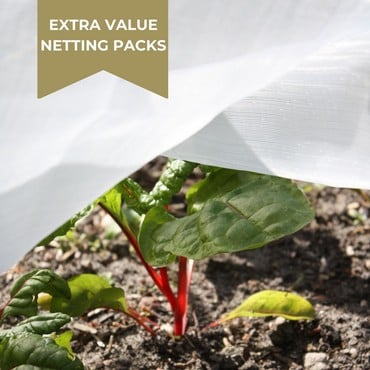Onion & Leek Moth
I’ve had problems down at the allotment with Onion Moth and Leek Moth (this is my 3rd year at the allotment which was not cultivated before I took it over). Although I’ve grown onions on it before, I’ve not had a problem in the previous two years with the few that I grew, and this is the first time that I’ve grown leeks.
As more and more of the allotment has been cleared for use, I’ve been able to grow more and I’ve now got ten distinct beds which will now be rotated. This year the onions and leeks were in the same bed.
Next year I was planning on having a complete bed for onions and the best part of another for leeks. The beds are approximately 3m x 6m and I don’t want to go to the expense of covering them in fleece or whatever, although I do have plenty of heavy duty 7mm butterfly mesh and that would not be a problem.
In case it makes any difference the affected onions were Japanese onions which I planted in Sept/Oct of last year, but the onions which I planted in May of this year (Stuttgarter Riesen) were unaffected.
Have you any ideas, please.
Many thanks,
Pete
It seems that the Leek & Onion Moth is a big problem over the country these days, but luckily we have not had the problem yet in Stephanie’s Kitchen Garden in our corner of Norfolk (touch wood!)
The fact that your leeks/onions were grown in the same place two years running may have contributed to the problem so crop rotation is advisable, you mentioned in your Email that you plan to do this so this will help immensely.
Unfortunately adult moths overwinter on plant debris so good housekeeping is essential – destroy severely infested plants and material and burn piles of leaves and plant debris before winter to drastically reduce the number of overwintering adults. Dig over the soil once harvested do disturb any overwintering adults and pupae. Carefully check the leeks in spring for caterpillars and destroy if found, and you may find that applying a organic contact spray the same time will check the progress of any caterpillars. The female moths can be prevented from laying eggs by covering susceptible plants with horticultural fleece
Harrod have two products on the website that you could use;
Insect Killer Spray relies on Pyrethrum as the active ingredient so should do the job on leek moth caterpillars too.
Savona which is an organic fatty acid concentrate used as an essential pest control liquid.
I can understand that you don’t want to go to the expense of protecting the whole area but it would certainly help. Take a look at the Insect Mesh Protection netting and the Ultra-Fine Insect Mesh Netting - you will find these cheaper than the recommended Enviromesh.
Good luck with your leek crop next year – I would be interested to hear how you get on.
Kind Regards
Lynn Burton
Horticultural Adviser
























